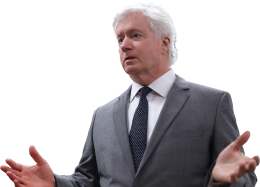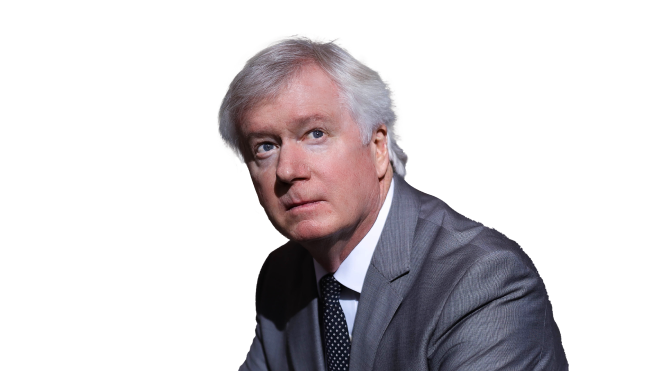
Personal injuries can range from mild to severe or even catastrophic injuries that require treatment for the rest of your life. Knowing how to identify personal injury symptoms is important so that you know to seek medical attention in time.
Our personal injury lawyers in Indiana from Vaughan & Vaughan discuss the most common types of personal injuries and their corresponding treatment. Read on to learn more about injuries commonly occurring in personal injury accidents.
Whiplash
Whiplash is a prevalent personal injury that often occurs as a result of sudden acceleration or deceleration forces during car accidents or other traumatic personal injury accidents. It primarily affects the neck and occurs when the head is abruptly jerked forward and then snapped backward, causing strain and damage to the soft tissues in the neck.
Symptoms of Whiplash
Whiplash symptoms may not always be immediately apparent after an accident and can vary from person to person. Common symptoms include:
- Neck pain and stiffness
- Headaches at the base of the skull
- Shoulder and upper back pain
- Reduced range of motion in the neck
- Fatigue and dizziness
- Tingling or numbness in the arms
- Sleep disturbances and difficulty concentrating
How Is Whiplash Treated?
The goal of whiplash treatment is to alleviate pain, reduce inflammation, restore neck mobility, and promote healing. Common treatment approaches include:
- Rest and activity modification: Adequate rest and avoiding activities that exacerbate symptoms can aid in the healing process.
- Pain management: Over-the-counter pain relievers, muscle relaxants, and prescribed medications may be used to manage pain and reduce inflammation.
- Physical therapy: Therapeutic exercises, stretching, and manual therapy techniques can help restore neck range of motion, strengthen muscles, and improve posture.
- Hot and cold therapy: Applying heat or cold packs to the affected area can help alleviate pain and reduce swelling.
- Neck braces or collars: In some cases, a neck brace or collar may be recommended to provide support and restrict neck movement during the initial stages of healing.
Your Case Will Get
The Attention It Deserves

Traumatic Brain Injuries
A traumatic brain injury (TBI) is a more serious injury that often results when your head or body hits an object with force. A TBI can also occur when an object pierces through your skull and hits your brain. TBIs are more of a crash risk, with larger vehicles going at high speeds.
How do You Know If You Have a Traumatic Brain Injury?
TBIs are serious injuries, and you need to seek medical attention as soon as possible. If you don’t, you could suffer severe and long-term brain damage, or it could be fatal. According to Mayo Clinic, here are the symptoms of a TBI you should look out for:
- Headache
- Problems speaking
- Dizziness
- Nausea
- Loss of consciousness
- Issues with memory
What Is the Treatment for a Traumatic Brain Injury?
The necessary treatment depends on the severity of the TBI. You won’t need any medical procedures if you have a mild TBI. Most mild TBIs just require you to get a lot of rest and take pain medicine to relieve the headache you’ll likely experience. Even though the injury is mild, you will still need to be monitored in case of any changes in your condition.
However, more severe TBIs may require treatments such as immediate emergency care that can include surgeries and medication. The most important thing after people suffer a brain injury is to ensure that there’s enough oxygen and blood flowing to the brain.
If you’ve suffered a TBI, our Indiana traumatic brain injury attorney at Vaughan & Vaughan can help you build a case today.
Spinal Cord Injuries
Another common and serious personal injury is a spinal cord injury. This type of injury is catastrophic because it can have long-term and severe effects on your life. Spinal cord injuries occur when a high impact on your spine crushes your vertebrae.
If the injury is severe enough, it can paralyze a person. To determine if you have a spinal cord injury after a car accident or a slip and fall, look out for these symptoms:
- Loss of movement
- Difficulty breathing
- Stinging in the spinal cord area
- Extreme pressure in the neck
- Weakness or inability to use any body part
What Type of Treatments Can Help Spinal Cord Injuries?
Currently, there is no solid treatment that can repair spinal cord injuries. However, there are multiple therapies and devices that can help people with spinal cord injuries. The most common type of treatment is going to physical therapy.
Occupational therapists can focus on regaining muscle and motor skills. Our Indiana catastrophic injury lawyers can help you build a case and recover damages for the medical costs.


Psychological and Emotional Conditions
The final most common personal injury is mental health conditions. Some of the most common mental health conditions you can suffer from any type of accident include:
- Depression
- Anxiety
- Post-traumatic stress disorder (PTSD)
- Panic disorder
The symptoms of these conditions have different symptoms, but there are also overlapping symptoms as well. In depression, anxiety, and panic disorder, you may have feelings of hopelessness, difficulty maintaining relationships, restlessness, irritability, and fatigue. It’s best to go to a psychiatrist for an evaluation for an official diagnosis.
How Are Mental Health Conditions Treated?
Luckily, there are several treatments available for mental health. The most common types of treatment are talk therapy and medication.
There are several different kinds of methods that therapists use based on their approach. In addition, working with a psychiatrist can help get you on the right medication that can help your symptoms.

Contact Us Today to Learn About Personal Injury Treatments
At Vaughan & Vaughan, our team of personal injury attorneys can help you understand what damages you’re eligible for depending on the type of injuries you’ve sustained. Contact us today to learn more about how our team can help you.






